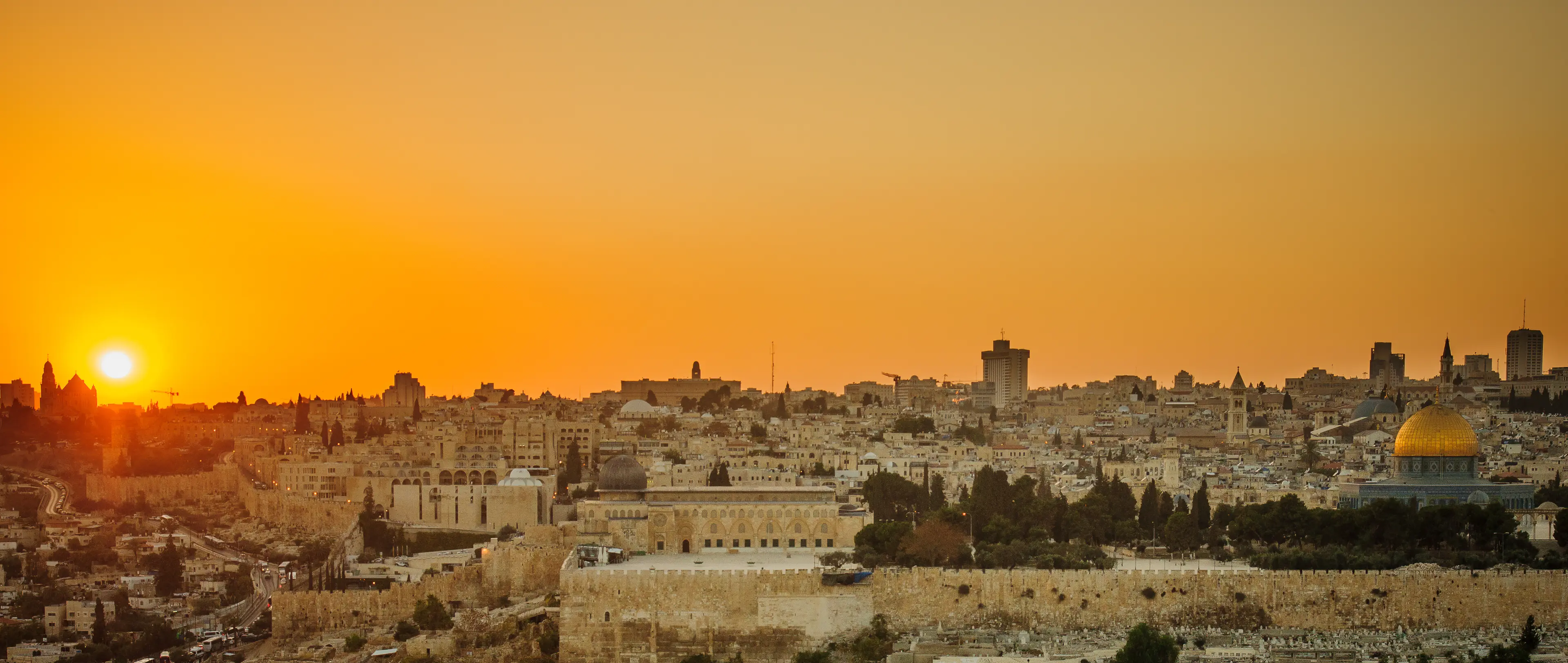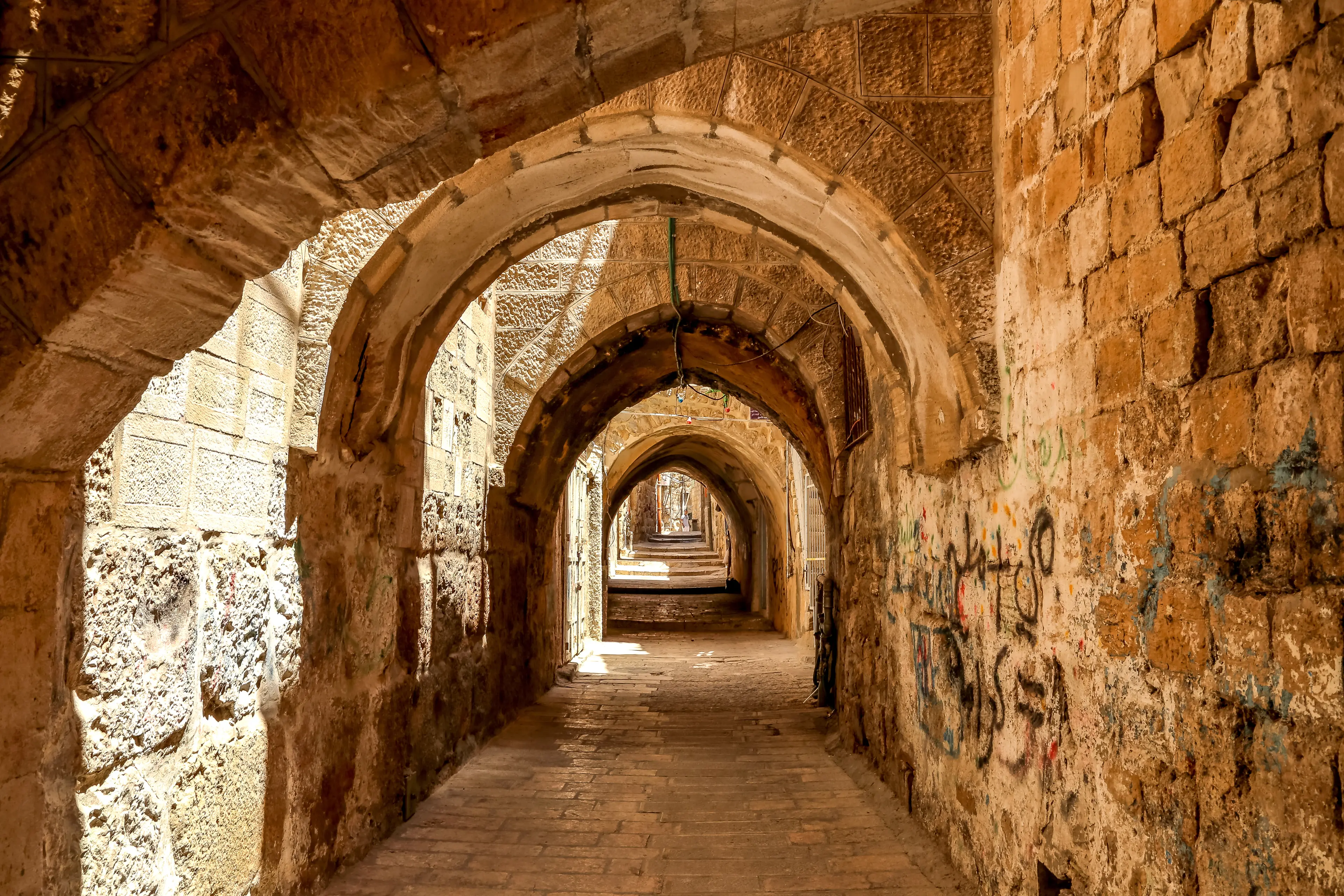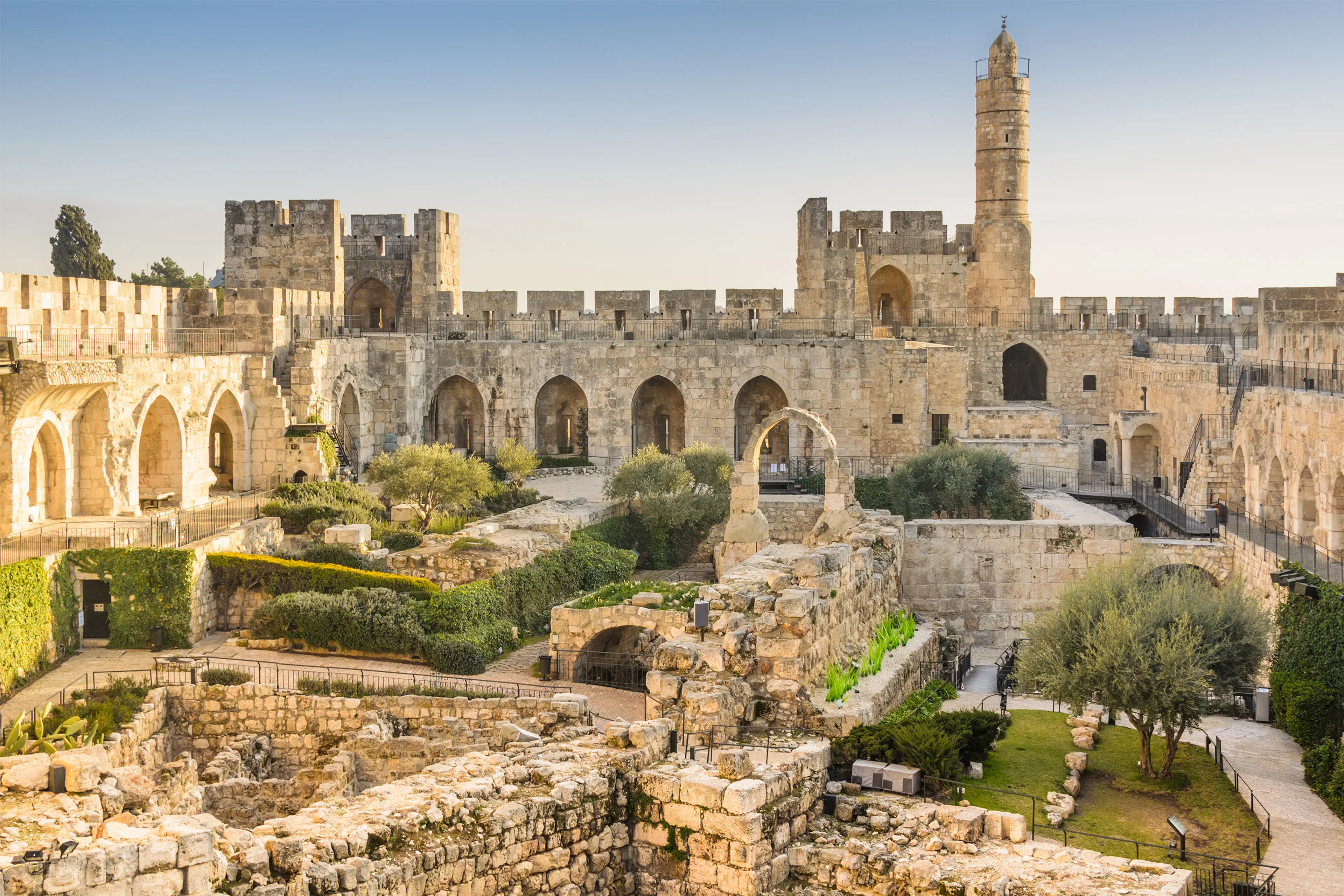1-Day Solo Food, Wine and Nightlife Adventure in Jerusalem
Jerusalem, Israel
1 days
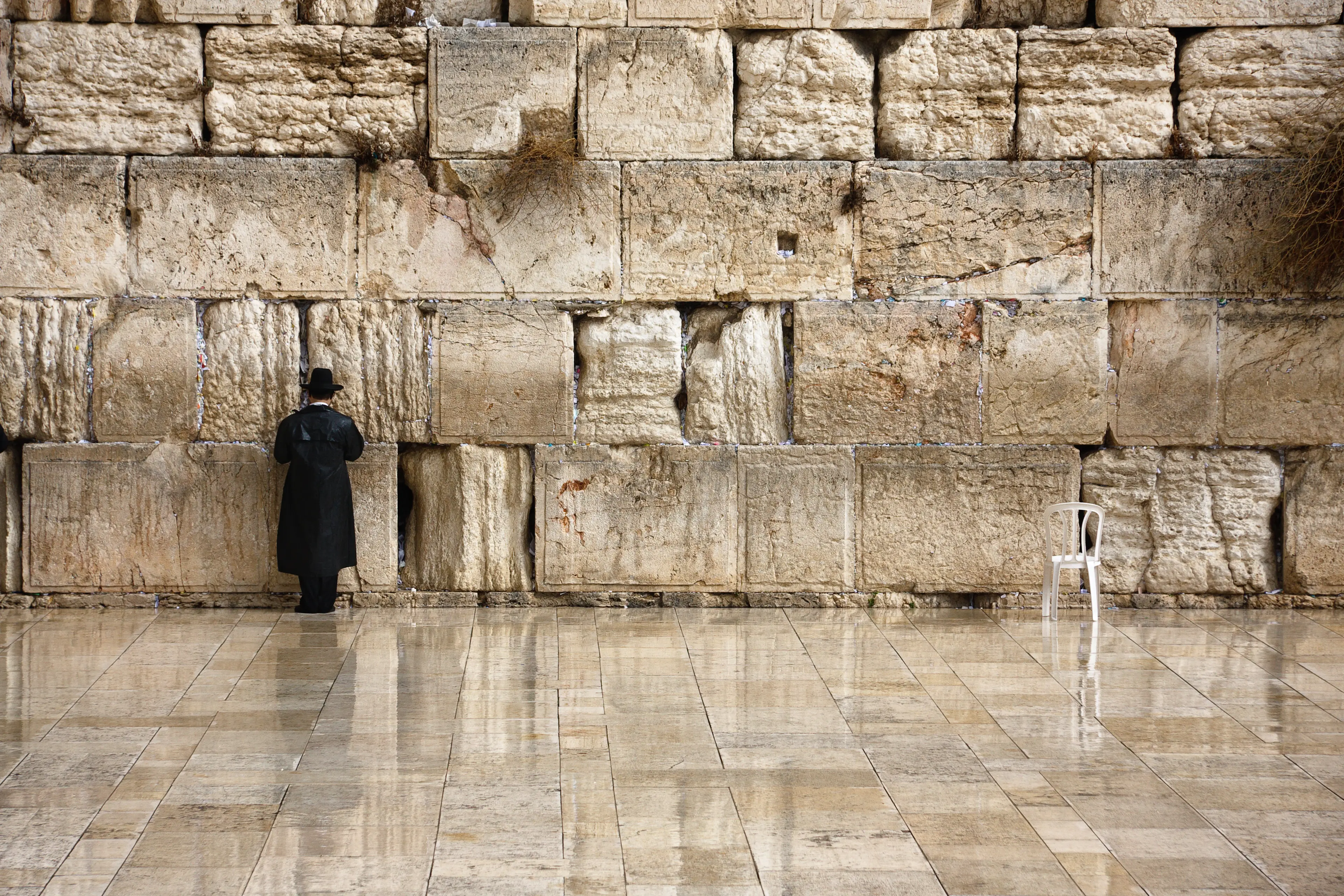
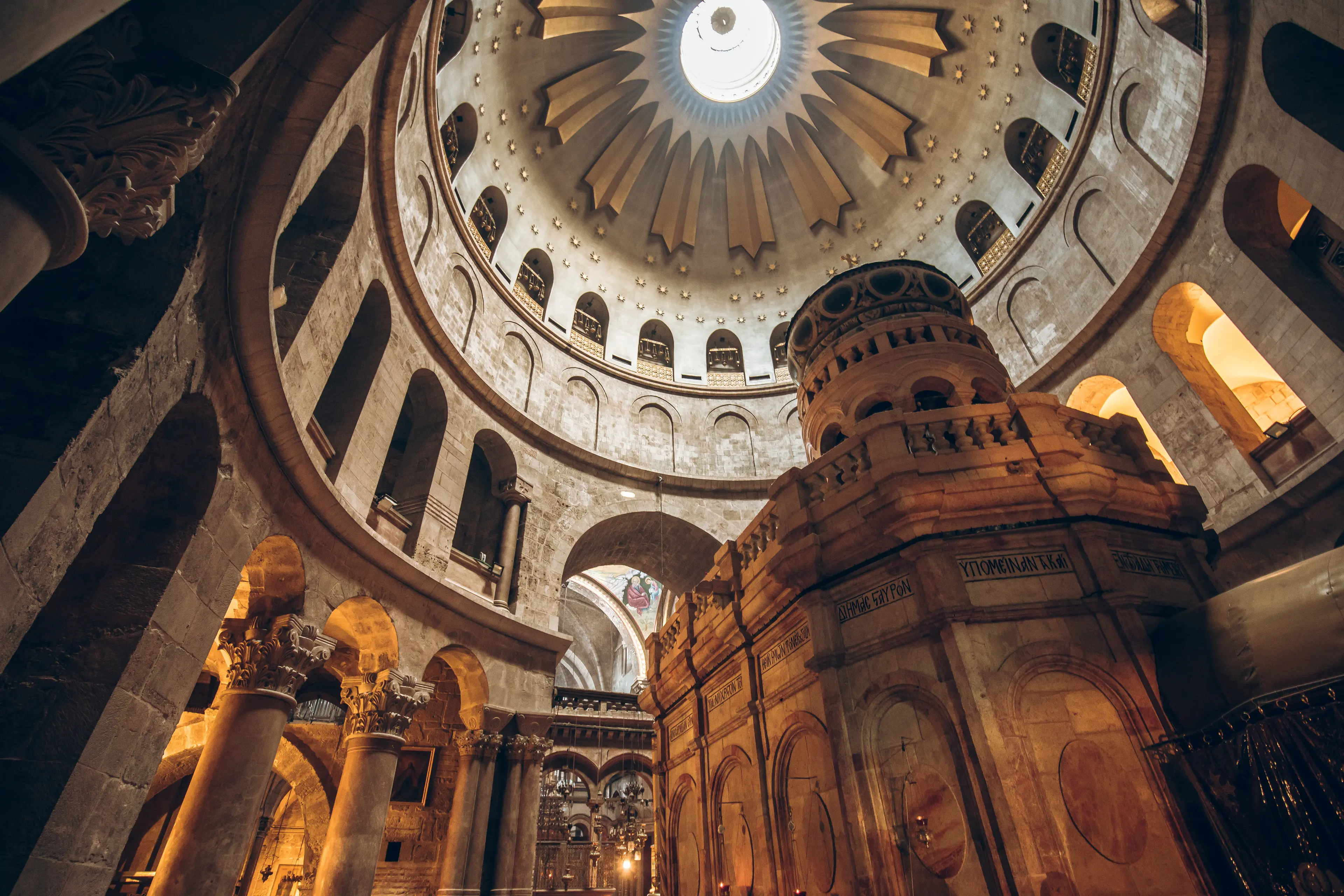
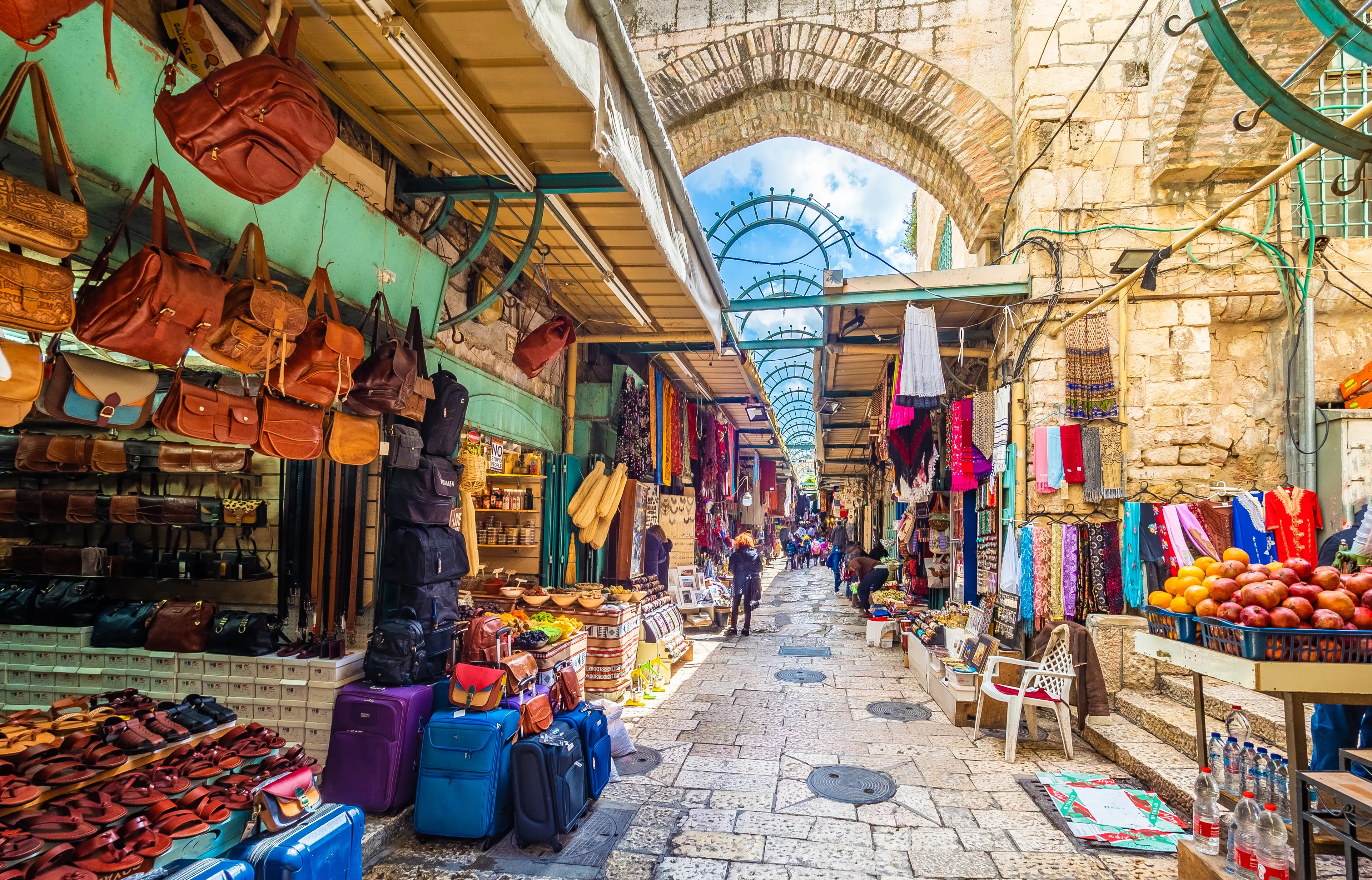
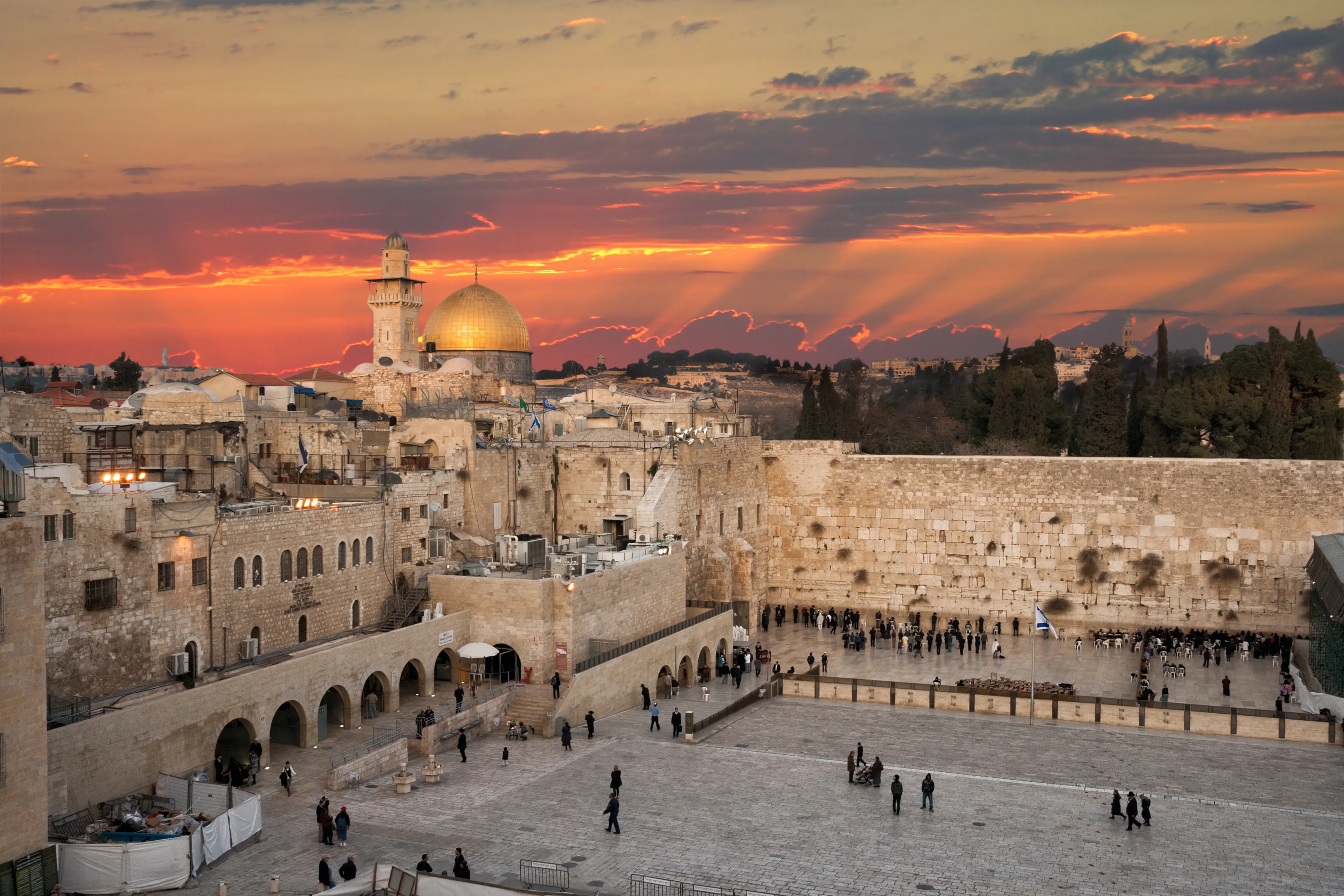
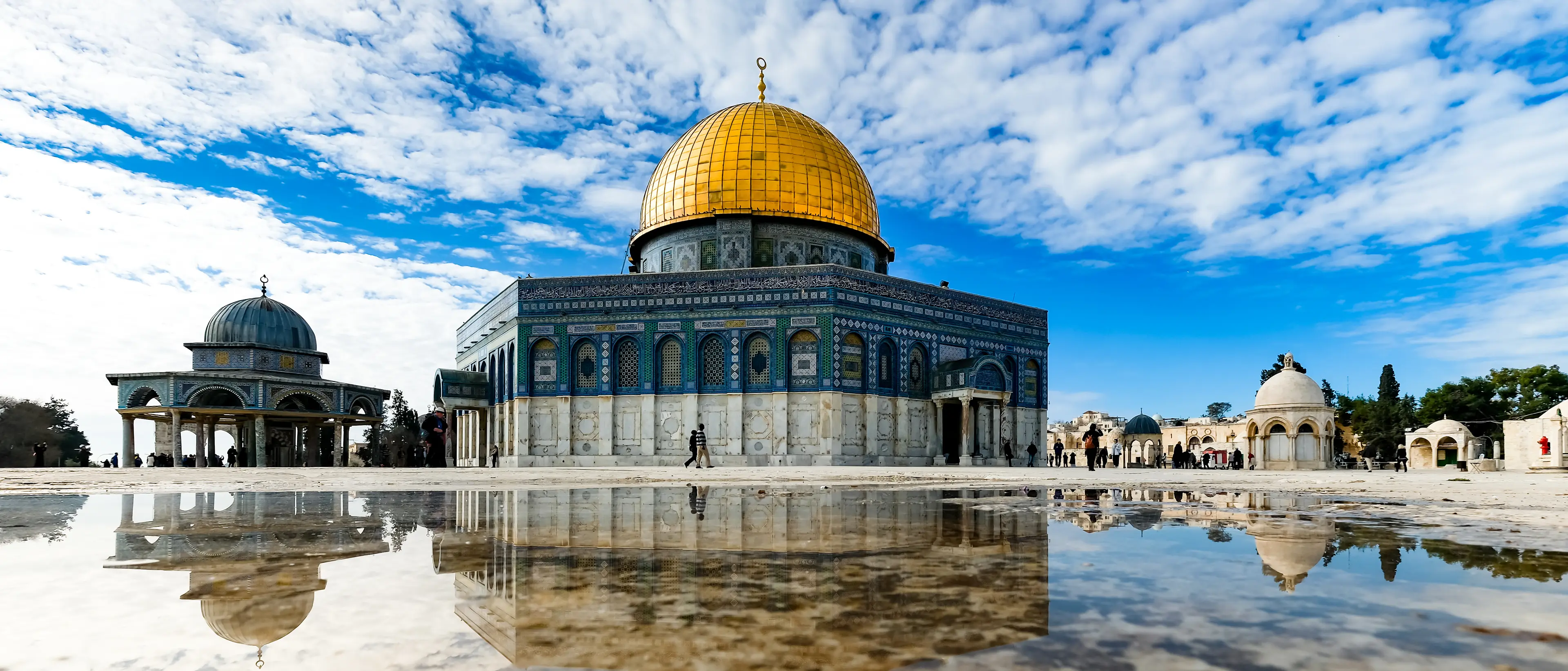
About Jerusalem, Israel
Experience the spiritual and historical richness of Jerusalem, Israel's largest city. Walk through the ancient, narrow streets of the Old City, a UNESCO World Heritage site, where sacred landmarks like the Western Wall, the Church of the Holy Sepulchre, and the Al-Aqsa Mosque coexist. Explore the vibrant Mahane Yehuda Market, brimming with local produce, spices, and traditional delicacies. Visit the Yad Vashem, a poignant memorial to the Holocaust. Enjoy panoramic views of the city from the Mount of Olives and stroll through the peaceful Garden of Gethsemane. Jerusalem is a city where ancient traditions meet modern culture, offering a unique blend of art, cuisine, and music. Whether you're seeking spiritual enlightenment, historical understanding, or cultural immersion, Jerusalem promises an unforgettable journey.
1-Day Itinerary
Attractions in Itinerary (7)
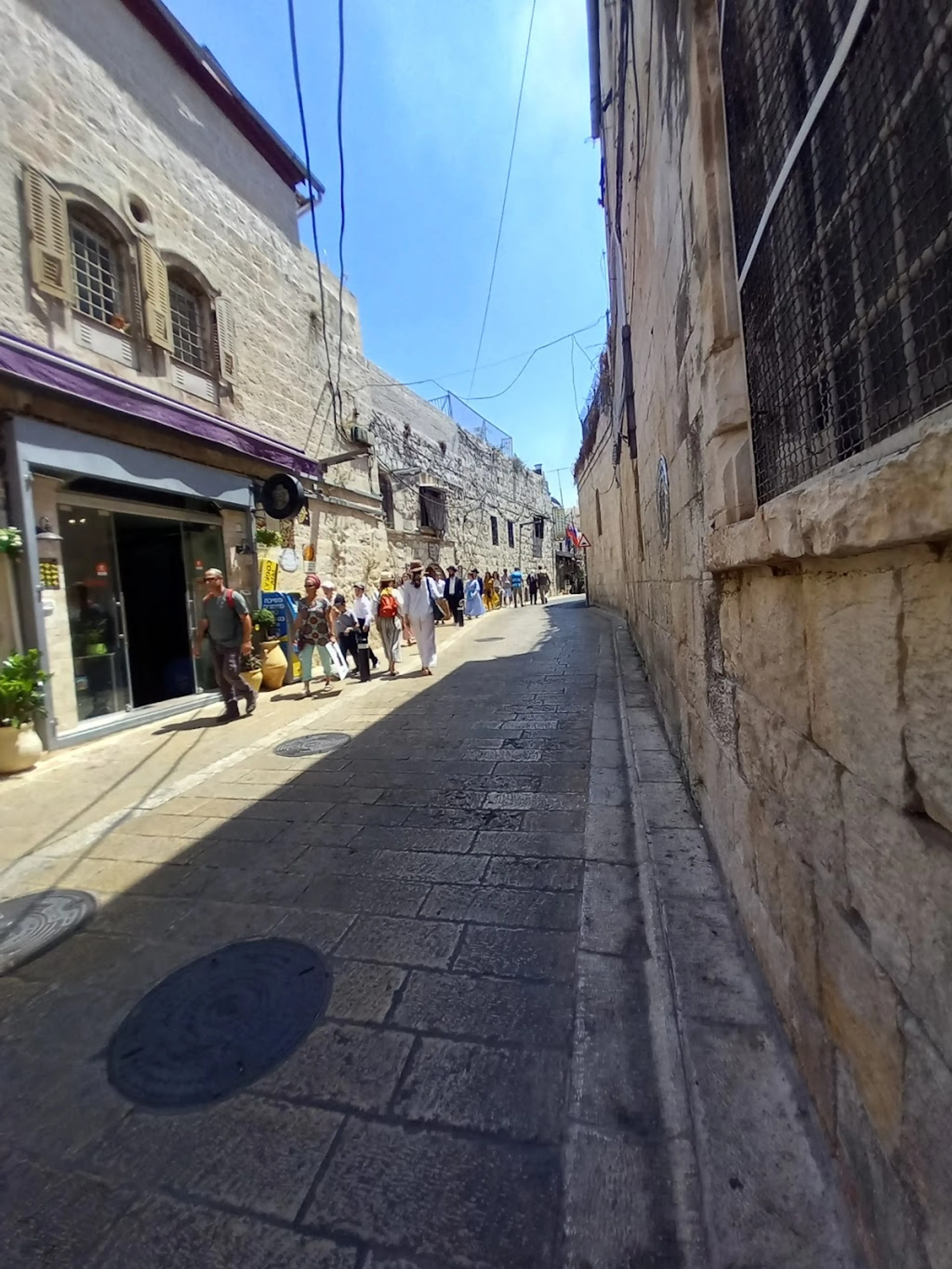
1Old City
A UNESCO World Heritage site, the Old City is home to several sites of key religious importance.
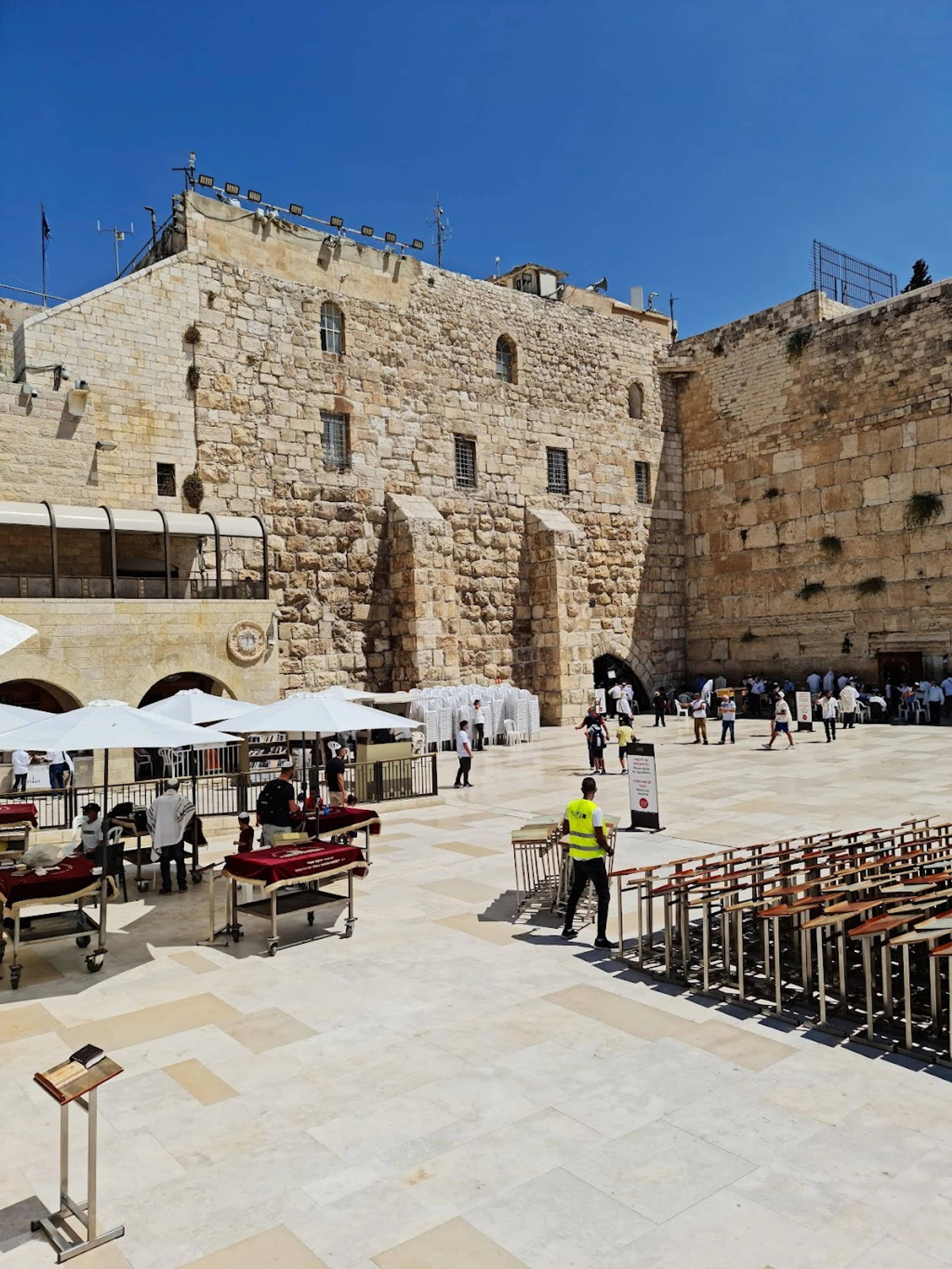
2Western Wall
An ancient limestone wall in the Old City of Jerusalem, it is a place of prayer and pilgrimage sacred to the Jewish people.
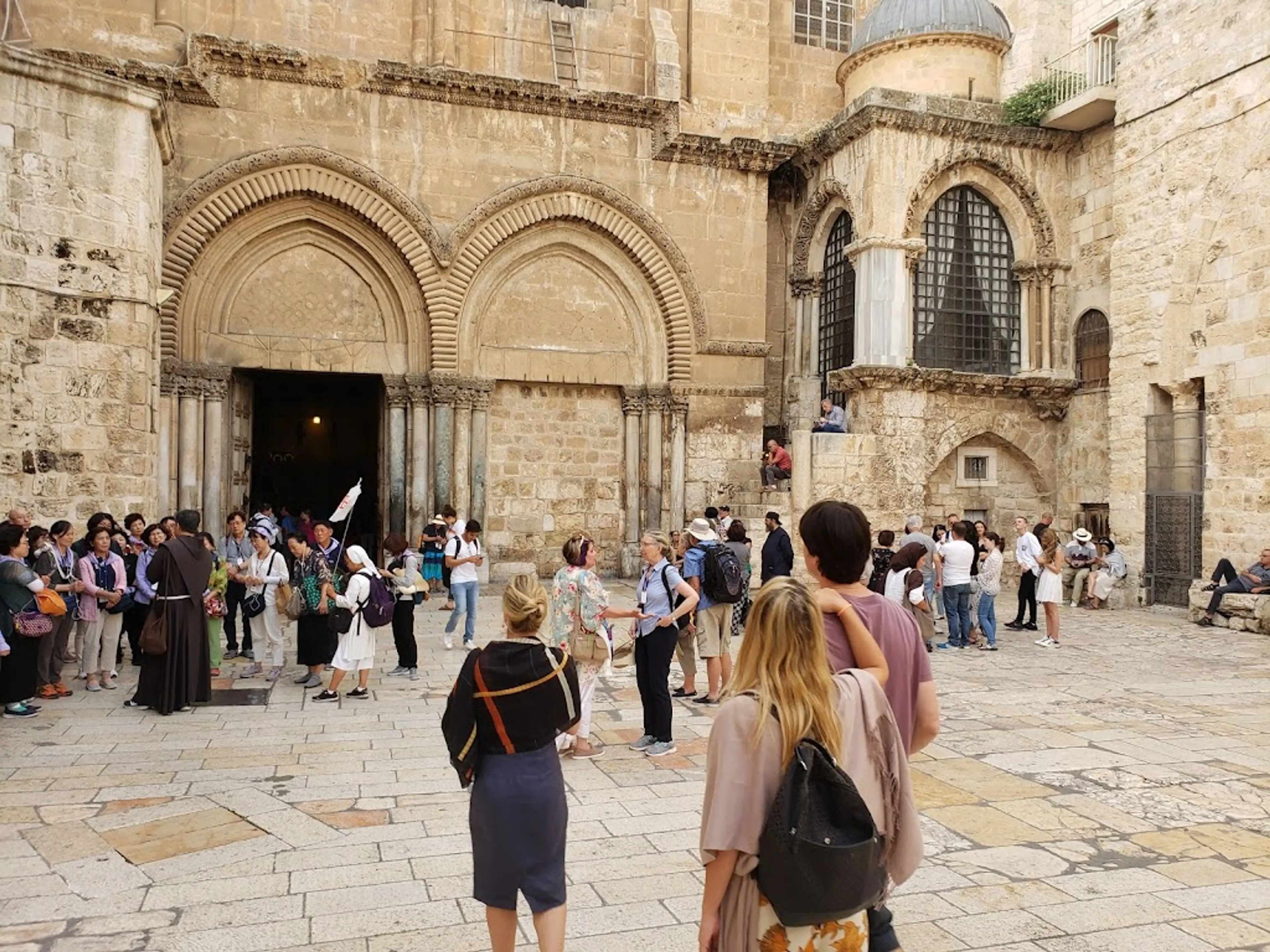
3Church of the Holy Sepulchre
One of the most holy sites in Christian tradition, this church is believed to contain the sites where Jesus was crucified and was buried and resurrected.

4Dome of the Rock
An Islamic shrine located on the Temple Mount, it is one of the oldest works of Islamic architecture.

5Israel Museum
Israel's national museum, home to the Dead Sea Scrolls, a large collection of Judaica and European art.

6Rose Garden
The Rose Garden in Jerusalem is a beautiful public space filled with thousands of rose bushes and other plants. It's a perfect place for a peaceful stroll, a picnic, or just to enjoy the beauty of nature.
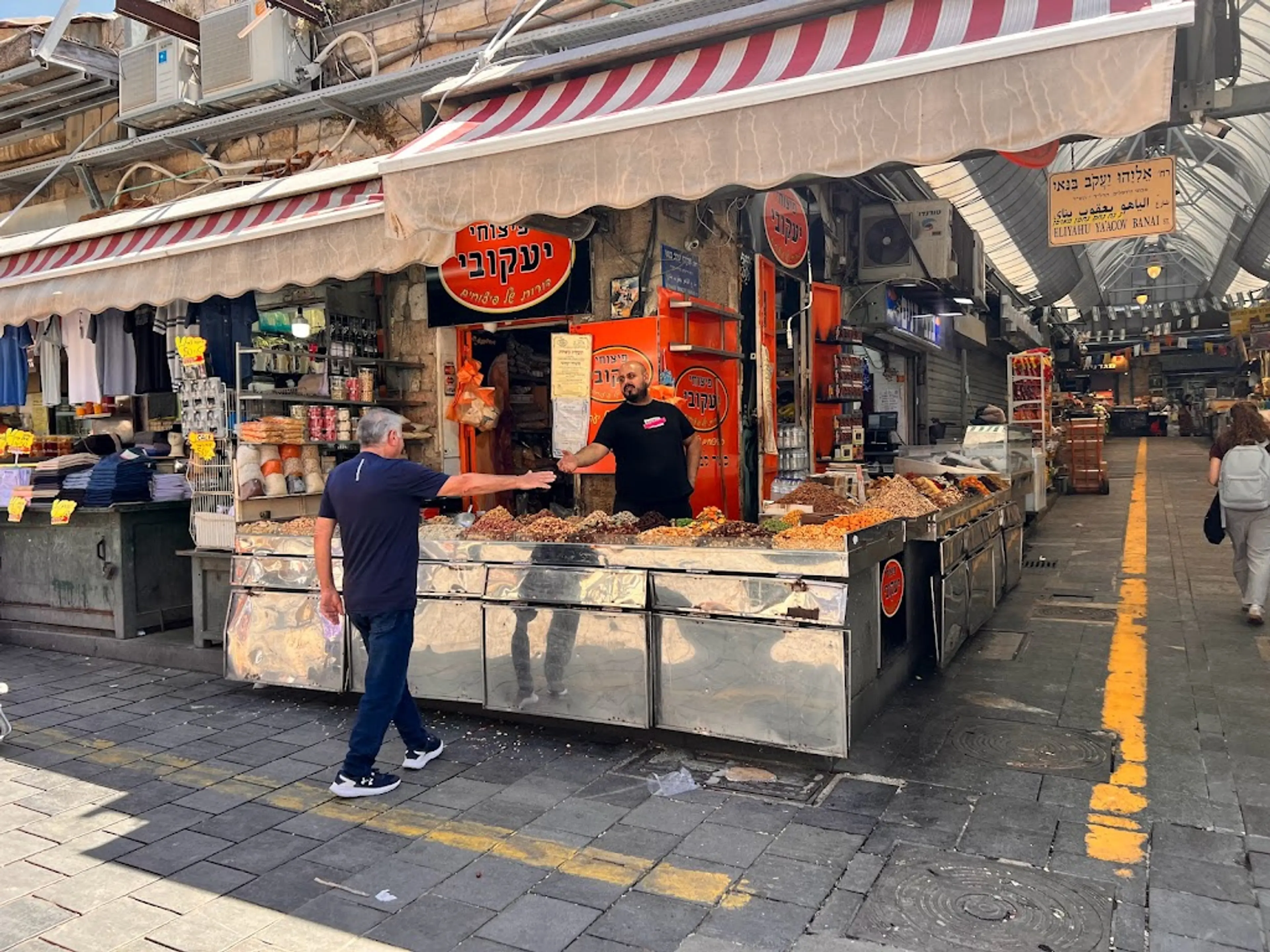
7Mahane Yehuda Market
A marketplace in Jerusalem where you can find everything from fresh produce to clothing, with a special atmosphere on Fridays.
Local Food and Drinks (12)

Hummus
A creamy chickpea spread that is a staple in Israeli cuisine. It is often served with warm pita bread and is a must-try for any visitor to Jerusalem.

Falafel
A deep-fried ball or patty made from ground chickpeas or fava beans. It is one of the most popular street foods in Jerusalem.

Shakshuka
A dish of eggs poached in a sauce of tomatoes, chili peppers, and onions, often spiced with cumin. It is a common breakfast food in Jerusalem.

Shawarma
A popular street food in Jerusalem, it consists of meat cut into thin slices, stacked in a cone-like shape, and roasted on a slowly-turning vertical rotisserie.

Baba Ganoush
A Levantine appetizer of mashed cooked eggplant mixed with tahini, olive oil, and various seasonings. It is often served as a dip with pita bread.

Israeli Salad
A chopped salad of finely diced tomato, onion, cucumber, and bell or chili peppers. It is a common accompaniment to many meals in Jerusalem.

Sabich
A traditional Israeli sandwich, consisting of pita bread stuffed with fried eggplant, hard-boiled eggs, salad, tahini, and amba sauce.

Malabi
A popular dessert in Jerusalem, it is a creamy pudding made from milk or cream and sugar, thickened with rice flour or cornstarch, and often flavored with rose water.

Bourekas
A filled pastry made of a thin flaky dough, filled with cheese, spinach, or mashed potatoes. It is a popular snack or breakfast food in Jerusalem.

Arak
A traditional Middle Eastern spirit made from grapes and aniseed. It is often served with water and ice, and is a popular drink in Jerusalem.

Turkish Coffee
A method of preparing coffee where finely powdered roast coffee beans are boiled in a pot. It is a common way to enjoy coffee in Jerusalem.

Limonana
A type of lemonade made from freshly-squeezed lemons and mint. It is a popular refreshing drink in Jerusalem, especially in the hot summer months.
Best time to visit
The best time to visit Jerusalem, Israel, is during the spring (April to June) and autumn (September to November). During these periods, the weather is generally pleasant and the city is less crowded compared to the high summer season. These seasons also coincide with major Jewish holidays such as Passover in spring and Sukkot in autumn, providing tourists with unique cultural experiences. However, it's important to note that prices may be higher during these holidays due to increased demand. Winter (December to February) can also be a good time to visit if you prefer cooler temperatures, but be prepared for occasional rain.
How to get around
Public Bus
Jerusalem's public bus system, operated by Egged, is extensive and can take you to most parts of the city. Buses are frequent and reliable, but can be crowded during peak hours. English route information is available on the Egged website.
Light Rail
The Jerusalem Light Rail runs from Pisgat Ze'ev in the north to Mount Herzl in the west, passing through the city center. It's a convenient way to travel, especially for visiting the Old City and the Mahane Yehuda Market.
Taxi
Taxis are plentiful in Jerusalem and can be hailed on the street or booked in advance. All taxis are metered, but it's a good idea to confirm the fare before you start your journey. Shared taxis, known as 'sherut', are also available.
Ridesharing
Ridesharing services like Uber and Gett are available in Jerusalem. These can be a convenient option, especially if you're traveling with a group or have a lot of luggage. However, availability can be limited during peak times and in certain areas.
Rental Car
Renting a car can give you the freedom to explore Jerusalem and the surrounding areas at your own pace. However, parking can be difficult in the city center, and the narrow, winding streets of the Old City are closed to private vehicles.
Bicycle
Jerusalem's bike-sharing program, Tel-O-Fun, offers a healthy and environmentally friendly way to get around. There are bike stations throughout the city, and you can rent a bike for a few hours or a whole day.
Foot
Many of Jerusalem's attractions are within walking distance of each other, especially in the Old City. Walking can be a pleasant way to explore, but be aware that the city is hilly and some areas have steep steps.
Tourist Shuttle
The Hop-On Hop-Off Tourist Shuttle Bus is a convenient way to see Jerusalem's major sights. The buses run regularly and you can get on and off as many times as you like throughout the day.
Private Tour
Private tours can be arranged with a guide who will drive you around the city. This can be a good option if you have limited time or want to learn more about Jerusalem's history and culture.
Monit Sherut
Monit Sherut are shared taxi vans that operate on specific routes. They run more frequently than buses and operate on Shabbat when most public transportation does not.
Important information
Currency₪ ILS
Time zoneUTC+2
Driving sideRight
Emergency phoneAmbulance: 101; Fire: 102; Police: 100
Drinking waterYes, but many opt for bottled water
Power sockets
Voltage230 V
Things to know about Jerusalem, Israel as a first time visitor
1
Jerusalem is a city of great religious significance, so it's important to dress modestly. This is especially true when visiting religious sites.
2
The official languages are Hebrew and Arabic, but English is widely spoken.
3
The local currency is the Israeli New Shekel (ILS). Credit cards are widely accepted, but it's good to have some cash for smaller establishments or street vendors.
4
Jerusalem operates on Israel Standard Time (IST), which is 2 hours ahead of Coordinated Universal Time (UTC+2).
5
The city has a Mediterranean climate, with hot, dry summers and cool, wet winters. Average summer temperatures range from 60-85°F (15-29°C), while winter temperatures range from 40-55°F (4-13°C).
6
Jerusalem is generally safe for tourists, but it's always wise to stay aware of your surroundings and avoid demonstrations or large gatherings.
7
Public transportation is reliable and includes buses, trams, and taxis. However, public transport doesn't operate from Friday afternoon until Saturday night due to the Jewish Sabbath.
8
Tipping is customary in Israel. It's usual to tip waitstaff 10-15% of the bill, and it's also appreciated to tip taxi drivers and hotel staff.
9
Israel has a 220-volt electricity supply, and the plug type is H, which is unique to Israel. You may need a travel adapter.
10
Jerusalem is a city with a complex political situation. It's wise to avoid discussing politics, especially in public places.
11
Israelis are known for their directness in communication. Don't be surprised if locals seem blunt or straightforward.
12
The tap water is safe to drink in Jerusalem, but if you have a sensitive stomach, you might prefer to stick to bottled water.
13
Jerusalem's Old City is divided into four quarters: Jewish, Muslim, Christian, and Armenian. Each has its own unique atmosphere and attractions.
14
Friday evenings and Saturdays are the Jewish Sabbath, or Shabbat. Many businesses close during this time, especially in the Jewish Quarter of the Old City.
15
Israeli cuisine is diverse and delicious. Don't miss trying local dishes like falafel, hummus, shakshuka, and Israeli salad.
16
Jerusalem has a vibrant market culture. The Mahane Yehuda Market is a must-visit for foodies.
17
If you're planning to visit the Dome of the Rock, a sacred Islamic site, note that non-Muslims are only allowed entry during certain hours and modest dress is required.
18
Israel has strict customs regulations. Be sure to declare all agricultural items and avoid bringing in any products from countries Israel doesn't have diplomatic relations with.
19
Israelis are generally very friendly and helpful to tourists. Don't hesitate to ask for directions or recommendations.
20
Remember to respect local customs and traditions. Jerusalem is a city of deep historical and religious significance, and it's important to be mindful of this during your visit.
Basic Hebrew to know as a first time visitor
English phrase | Native phrase | Pronunciation | When to use it |
|---|---|---|---|
Hello | שלום | Shalom | Greeting someone |
Goodbye | להתראות | Lehitraot | Saying goodbye |
Please | בבקשה | Bevakasha | Making a request |
Thank you | תודה | Toda | Expressing gratitude |
Yes | כן | Ken | Agreeing or confirming |
No | לא | Lo | Disagreeing or denying |
Excuse me | סלח לי | Slicha | Getting attention or apologizing |
I don't understand | אני לא מבין | Ani lo mevin | When you don't understand something |
Do you speak English? | אתה מדבר אנגלית? | Ata medaber anglit? | Asking if someone speaks English |
Where is the bathroom? | איפה השירותים? | Eifo ha'sherutim? | Finding a bathroom |
How much does this cost? | כמה זה עולה? | Kama ze oleh? | Asking the price of something |
I need a doctor | אני צריך רופא | Ani tzarich rofe | In case of a medical emergency |
Help | עזרה | Ezra | In case of an emergency |
Food | אוכל | Ochel | When looking for something to eat |
Water | מים | Mayim | When asking for water |
Hotel | מלון | Malon | When looking for a place to stay |
Taxi | מונית | Monit | When needing transportation |
Airport | נמל התעופה | Namal HaTeufa | When needing to find the airport |
Good morning | בוקר טוב | Boker Tov | Greeting someone in the morning |
Good night | לילה טוב | Laila Tov | Saying goodnight |
Packing List
Clothing
Comfortable walking shoes
Lightweight clothing
Warm sweater or jacket for cooler evenings
Hat for sun protection
Sunglasses
Swimwear (if planning to visit the Dead Sea)
Scarf or shawl for visiting religious sites
Toiletries
Travel-sized toothpaste and toothbrush
Deodorant
Sunscreen
Hand sanitizer
Travel-sized shampoo and conditioner
Personal hygiene items
Travel documents and essentials
Passport
Driver's license or other form of ID
Health insurance card
Credit and debit cards
Cash in local currency (Israeli Shekel)
Hotel and transportation reservation confirmations
Emergency contact information
Electronics and gadgets
Smartphone
Charger for smartphone
Universal power adapter
Camera
Charger for camera
Headphones
Miscellaneous items
Travel guidebook for Jerusalem
Reusable water bottle
Snacks
Backpack or daypack
Travel pillow
First aid kit
Umbrella
Travel-sized laundry detergent
Weather Conditions
Jerusalem, Israel, experiences a Mediterranean climate with hot, dry summers and cool, wet winters. The best time to visit Jerusalem is during the spring (April to June) and autumn (September to November) when the weather is mild and pleasant. During the summer months (June to August), temperatures can reach up to 85°F (29°C), so it's advisable to wear light, breathable clothing, hats, and sunscreen to protect against the strong sun. It's also a good idea to carry a water bottle to stay hydrated. Winter (December to February) in Jerusalem can be quite chilly with temperatures dropping to around 41°F (5°C). Rain is common during this period, and there can even be occasional snowfall. Therefore, it's recommended to pack warm clothing, waterproof shoes, and an umbrella. Regardless of the season, Jerusalem's weather can change quickly, so it's always a good idea to check the local forecast before heading out for the day. Also, due to the city's religious significance, modest clothing is recommended. This means covering shoulders and knees, especially when visiting religious sites. Lastly, remember that Jerusalem is located at a high altitude, so the sun can be stronger than you might expect, even on cooler days. Always wear sun protection, even in the winter months. Enjoy your visit to this historic and beautiful city!
| Month | Hi / Lo (°C) | Weather Overview |
|---|---|---|
January | 16° / 6° | January is the coldest month in Jerusalem, with occasional rain and snowfall. Pack warm clothes and waterproof shoes. |
February | 18° / 6° | February is still quite chilly with a chance of rain. It's a good time to visit museums and indoor attractions. |
March | 20° / 8° | In March, the weather starts to warm up, but there can still be some rainy days. The almond trees start to bloom, making it a beautiful time to visit. |
April | 25° / 11° | April is a pleasant month with mild temperatures and little rain. It's a great time to explore the city on foot. |
May | 27° / 15° | May brings warm weather and lots of sunshine. It's a perfect time for outdoor activities and sightseeing. |
June | 30° / 18° | June is the start of the hot season, with almost no rain. Stay hydrated and protect yourself from the sun. |
July | 34° / 20° | July is the hottest month in Jerusalem. Early morning and late evening are the best times to explore the city. |
August | 34° / 20° | August is equally hot as July, with high temperatures throughout the day. It's a good time to visit indoor attractions or relax at a café. |
September | 32° / 18° | September is still quite hot, but the temperatures start to drop towards the end of the month. It's a great time to visit the Old City. |
October | 29° / 15° | October brings cooler temperatures and the start of the rainy season. Pack a light jacket and an umbrella. |
November | 23° / 11° | November is a mild month with occasional rain. It's a good time to visit museums and historical sites. |
December | 18° / 8° | December is a cool month with a chance of rain and even snow. It's a festive time to visit, with Christmas celebrations in the city. |
Did you know?
Places near by Jerusalem, Israel

Masada
An ancient fortification in the Southern District of Israel situated on top of an isolated rock plateau.

Dead Sea
One of the world's saltiest bodies of water, 9.6 times as salty as the ocean. This salinity makes for a harsh environment in which plants and animals cannot flourish.

Tel Aviv
A lively city on Israel's Mediterranean coast known for its Bauhaus architecture, beaches, and vibrant nightlife.

Caesarea
An ancient city and harbor built by Herod the Great about 25–13 BC. Today, its ruins lie on the Mediterranean coast of Israel.

Ein Gedi
A nature reserve and national park known for its stunning desert landscapes, hiking trails, and diverse wildlife.

Haifa
A northern Israeli port city built in tiers extending from the Mediterranean up the north slope of Mount Carmel. Known for the beautiful Baha'i Gardens.

Sea of Galilee
Also known as Lake Tiberias or Kinneret, it's a freshwater lake in Israel and a significant site in the Christian New Testament.

Acre
A city in the northern coastal plain region of northern Israel at the northern extremity of Haifa Bay. Known for its well-preserved old city walls.

Rosh Hanikra
A geologic formation on the border between Israel and Lebanon, located on the coast of the Mediterranean Sea.

Eilat
Israel's southernmost city, a busy port and popular resort, known for its coral beach nature reserve.
